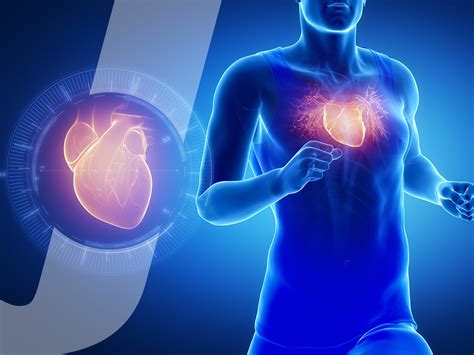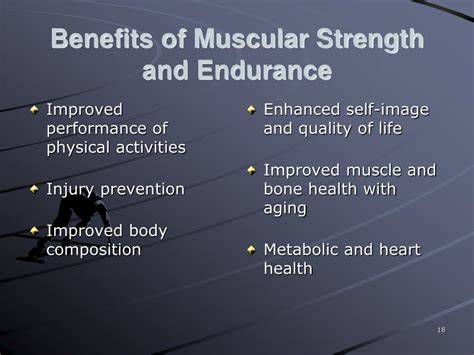A consistent and ongoing physical routine plays a crucial role in enriching not just your physical state but also your mental and emotional well-being. Engaging in habitual movement and systematic training methods can lead to remarkable improvements in numerous aspects of your life and contribute to a healthier and more fulfilled existence.
By incorporating regular physical activity into your daily routine, you can unlock a plethora of advantages that extend far beyond the realm of physical fitness. This practice can empower you to experience increased vitality, enhanced cognitive function, and an elevated sense of self-confidence. Embracing an active lifestyle can also foster better stress management, bolstered immune system, and a greater overall sense of happiness and contentment.
Through the resolute commitment to a consistent exercise regime, you can embark on a transformative journey that ignites your inner potential, empowers you to set and achieve personal goals, and establishes a strong foundation for a life filled with optimal health and wellness. So, let the pursuit of physical fitness become an integral part of your life, and witness the extraordinary impact it can have on every facet of your existence.
Improved Cardiovascular Health

Enhancing the well-being of your heart and blood vessels can be achieved through regular physical activity. The positive impact of consistent workouts on your cardiovascular system cannot be overstated. A comprehensive exercise regimen increases the efficiency of your heart, thereby improving blood circulation throughout the body.
Engaging in regular exercise helps to strengthen the cardiac muscles and enhance the heart's ability to pump blood. As a result, the heart can distribute oxygen and essential nutrients more effectively, allowing all organs and tissues to function optimally. By promoting the health of your cardiovascular system, regular exercise reduces the risk of heart disease, high blood pressure, and stroke.
Besides strengthening the heart, consistent exercise aids in maintaining ideal body weight, which naturally reduces the strain on the cardiovascular system. Regular physical activity also helps manage cholesterol levels by increasing high-density lipoprotein (HDL) or "good" cholesterol while lowering low-density lipoprotein (LDL) or "bad" cholesterol. This favorable lipid profile decreases the chances of plaque formation in arteries and reduces the risk of developing atherosclerosis.
Furthermore, engaging in aerobic exercises such as running, swimming, or cycling can improve lung capacity and oxygen uptake, enhancing overall cardiovascular fitness. Regular workouts help to lower resting heart rate and blood pressure, allowing your heart to work more efficiently. Additionally, exercise stimulates the production of nitric oxide, a vasodilator that relaxes and expands blood vessels, resulting in improved blood flow and reduced strain on the cardiovascular system.
Enhanced mental well-being
Improving your mental well-being is a positive outcome of engaging in regular physical activity and exercise. By incorporating physical exercise into your daily routine, you can boost your overall mental health and achieve a sense of improved well-being.
Physical activity has been shown to alleviate symptoms of stress and anxiety, providing individuals with a natural way to manage and cope with daily challenges. Engaging in exercise stimulates the release of endorphins, which are known as "feel-good" neurotransmitters that can enhance your mood and create a sense of happiness and relaxation.
In addition, regular exercise can also contribute to clearer thinking and improved cognitive function. Exercise has been shown to increase blood flow to the brain, which can enhance mental alertness and promote sharper focus and concentration. This can have a positive impact on your productivity and ability to effectively handle tasks and responsibilities.
Exercise can also serve as a form of self-care, allowing individuals to take time for themselves and engage in activities that promote relaxation and stress relief. Whether it's going for a jog, practicing yoga, or participating in a team sport, physical activity provides an opportunity for individuals to disconnect from daily stressors and focus on their own well-being.
| Enhanced mental well-being |
|---|
| Alleviates stress and anxiety |
| Stimulates release of endorphins |
| Improves cognitive function |
| Promotes relaxation and stress relief |
Increased Strength and Endurance

Enhanced physical power and stamina are among the considerable advantages that come with engaging in regular physical activity. By committing to a consistent exercise routine that focuses on building strength and improving endurance, individuals can experience noticeable improvements in their overall physical capabilities.
Amplifying one's strength and endurance levels can lead to numerous positive outcomes in daily life and physical performance. Whether it be the ability to carry heavier loads, engage in more intense physical activities, or simply tackle everyday tasks with greater ease, increased strength and endurance offer notable benefits.
Engaging in regular exercise that targets muscular strength enables the body to better perform demanding tasks and handle physical stressors. It allows individuals to execute movements with greater force and efficiency, enhancing overall efficiency and functionality.
Endurance, on the other hand, refers to the body's ability to sustain physical activity for extended periods without succumbing to fatigue. Regular exercise that focuses on cardiovascular fitness and muscular conditioning can significantly improve endurance levels.
By enhancing endurance, individuals can engage in activities for longer durations and maintain a high level of performance without experiencing excessive exhaustion. This can have far-reaching implications, from enhancing productivity in daily tasks to excelling in athletic endeavors.
Furthermore, increased endurance can contribute to improved cardiovascular health, as the heart becomes more efficient at pumping blood and oxygen to the muscles, and the lungs become more effective at utilizing oxygen during physical exertion.
In conclusion, regular exercise plays a pivotal role in building strength and endurance, leading to numerous benefits in daily functioning and physical performance. It empowers individuals to accomplish tasks more effectively, sustain physical activity for longer durations, and enhance overall cardiovascular health.
Weight management and body composition
Striving for a healthy weight and optimal body composition is an essential aspect of overall well-being and self-care. Recognizing the significance of maintaining a balanced weight and favorable body composition contributes to improved fitness, enhanced energy levels, and a reduced risk of various health conditions. Focusing on weight management encompasses much more than just striving for an aesthetically pleasing physique; it involves adopting a holistic approach that promotes physical, mental, and emotional wellness.
Effectively managing and maintaining a healthy weight not only impacts our physical appearance but also plays a key role in promoting long-term health. Regular physical activity, along with a balanced diet, contributes to weight loss, weight maintenance, and the achievement of an optimal body composition. When we engage in regular exercise, our metabolism is boosted, allowing our bodies to efficiently burn calories and excess fat. Furthermore, exercise helps to build and maintain lean muscle mass, which is crucial for a healthy body composition.
Combining exercise with proper nutrition is fundamental for weight management and body composition goals. A varied and balanced diet that includes a wide range of nutrients supports a healthy metabolism, aids in muscle recovery and growth, and provides the energy required for physical activity. It is important to note that focusing solely on weight loss can be detrimental to overall well-being, and a more comprehensive approach aims to achieve a healthy weight and body composition in a sustainable manner.
In summary, striving for a healthy weight and favorable body composition is crucial for overall health and well-being. Regular exercise, alongside a nutritious diet, contributes to weight management by enhancing metabolism, promoting fat loss, and supporting the development of lean muscle mass. Embracing a holistic approach that encompasses physical, mental, and emotional aspects is essential for achieving and maintaining optimal body composition, leading to improved overall wellness.
Reduced risk of chronic diseases

Regular physical activity plays a crucial role in minimizing the likelihood of developing chronic illnesses. By engaging in consistent exercise, individuals can significantly decrease their chances of experiencing long-term health issues.
Exercise acts as a preventive measure against various chronic conditions, such as cardiovascular disease, diabetes, and certain types of cancer. This active lifestyle promotes stronger physical health, enhancing the body's ability to fight off these diseases by improving the functioning of vital organs and systems.
Moreover, regular exercise positively influences metabolic rates, blood pressure levels, and insulin sensitivity, all of which are crucial factors in warding off chronic diseases. By engaging in physical activity, individuals reduce their risk of developing obesity, a triggering factor for many other health conditions.
In addition to physical health benefits, exercise also contributes to mental well-being, reducing the risk of mental health disorders such as depression and anxiety. Physical activity stimulates the release of endorphins, commonly known as "feel-good" chemicals, which elevate mood and help alleviate symptoms of stress and mental strain.
The positive impact of exercise on overall health and wellness cannot be overstated. It serves as a powerful tool in preventing chronic diseases, both physical and mental, and promotes a vibrant and fulfilling life.
Enhanced Immune System Function
Optimizing the performance of your body's natural defense system is one of the many advantages you can gain from engaging in regular physical activities. By regularly incorporating exercise into your routine, you can experience a significant improvement in your immune system's overall functioning, resulting in a strengthened ability to ward off illness and maintain overall well-being.
Engaging in physical activity stimulates the production of various cells and molecules that play crucial roles in immune system function. These include white blood cells, antibodies, and cytokines, which work together to detect and eliminate harmful pathogens that could potentially cause illness. Regular exercise also helps to enhance the circulation of these immune cells throughout the body, allowing for a more efficient response to potential threats.
- Exercise has been shown to increase the production of natural killer cells, which are responsible for detecting and destroying cancerous and virus-infected cells in the body.
- Regular physical activity can also improve the circulation of antibodies, which are essential for neutralizing harmful substances and preventing infections.
- Furthermore, exercise has been found to reduce the levels of stress hormones in the body, which can have a negative impact on the immune system. By reducing stress, exercise helps to promote a healthier and more robust immune response.
In addition to these direct effects, regular exercise can also enhance the overall health of your body, making it less susceptible to illness and disease. By improving your cardiovascular health, maintaining a healthy weight, and reducing your risk of chronic conditions such as diabetes and hypertension, exercise contributes to your overall well-being and indirectly supports a stronger immune system.
Overall, incorporating regular exercise into your lifestyle can provide significant benefits for your immune system. By strengthening your body's natural defense system, exercise helps to ward off illness, enhance overall health, and promote a greater sense of well-being.
Sleep: Recharge Your Mind and Body

Getting adequate and restful sleep is essential for both our mental and physical well-being. When we engage in regular physical activity, it can positively impact the quality of our sleep, leading to better overall sleep patterns.
Regular exercise promotes deeper sleep, allowing your body to enter into the restorative phases of sleep more efficiently. By staying active, you increase the duration of slow-wave sleep, also known as deep sleep, which is vital for rejuvenating both our mind and body. Engaging in physical activity can also help regulate circadian rhythms, our body's internal clock, contributing to a more consistent sleep schedule.
In addition to improving sleep quality, exercise can also alleviate sleep-related disorders such as insomnia. Physical activity promotes the production of endorphins, known as the body's natural mood elevators, which can reduce symptoms of anxiety and stress that often contribute to sleep disturbances. Furthermore, regular exercise creates a greater overall feeling of fatigue, making it easier to fall asleep and stay asleep throughout the night.
It's important to note that exercising too close to bedtime may have the opposite effect and disrupt your sleep. To optimize sleep quality, it's recommended to finish your workout at least a few hours before bedtime. This allows your body time to cool down and unwind, preparing you for a peaceful night's sleep.
In conclusion, regular physical activity has numerous benefits for our sleep quality. By incorporating exercise into our routine, we can experience deeper and more restful sleep, improved mood, and overall enhanced well-being.
Improving Your Energy Levels: The Power of Regular Physical Activity
Enhancing your energy levels is an invaluable outcome of incorporating consistent physical activity into your daily routine. By engaging in regular exercise, you can experience a boost in vitality, endurance, and overall stamina. These improvements can provide you with the necessary drive to tackle your daily tasks with enthusiasm and vigor, allowing you to lead a more productive and fulfilling life.
One of the key advantages of maintaining an active lifestyle is the ability to optimize your metabolism. Regular physical activity stimulates your body's systems, accelerating the rate at which you burn calories and convert food into energy. This heightened metabolic rate can lead to increased energy levels throughout the day, enabling you to stay focused and alert even during demanding tasks.
In addition to revving up your metabolism, regular exercise promotes enhanced blood circulation. As you engage in cardiovascular activities, your heart rate increases, transporting oxygen and vital nutrients more efficiently to your muscles and organs. This improved circulation not only boosts your physical performance but also revitalizes your body, leaving you feeling invigorated and ready to take on any challenges that come your way.
- Regular exercise stimulates the release of endorphins - chemicals in the brain that act as natural mood enhancers. These endorphins not only help to alleviate stress, anxiety, and depression but also play a crucial role in boosting your energy levels, allowing you to experience an overall sense of well-being.
- Through physical activity, your body gradually becomes stronger and more resilient. Regular exercise strengthens your muscles, increases bone density, and improves lung capacity, all of which contribute to greater endurance and reduced feelings of fatigue.
- Engaging in regular exercise can promote better-quality sleep, enabling you to wake up feeling refreshed and energized. Physical activity helps regulate your sleep patterns, ensuring you experience deeper, more restful sleep cycles, leadingto improved energy levels during the day.
Incorporating consistent physical activity into your life can have a profound impact on your energy levels and overall well-being. By embracing exercise, you can unleash the full potential of your body, leading to increased vitality, endurance, and mental acuity. So seize the opportunity to elevate your energy levels and live your life to the fullest through regular physical activity!
FAQ
What are the main benefits of regular exercise?
Regular exercise has numerous benefits to both physical and mental health. It helps in controlling weight, reducing the risk of chronic diseases like heart disease and diabetes, strengthening muscles and bones, improving mood and mental well-being, enhancing sleep quality, and increasing overall energy levels.
How often should I exercise to reap the health benefits?
To maximize the health benefits, it is recommended to engage in at least 150 minutes of moderate-intensity aerobic exercise or 75 minutes of vigorous-intensity exercise per week. This can be broken down into smaller sessions of 30 minutes, five days a week, or into any other combination that suits your schedule.
What kinds of exercises should I do to stay fit and healthy?
There are various types of exercises that can help maintain fitness and promote overall health. These include aerobic exercises like walking, running, swimming, or cycling, strength training activities using weights or resistance bands, flexibility exercises such as yoga or stretching, and balance exercises like tai chi. A combination of these exercises is ideal for well-rounded fitness.
Can exercise help with weight loss?
Regular exercise plays a crucial role in weight loss and weight management. It helps to burn calories and increase metabolism, which aids in shedding excess weight. However, it's important to combine exercise with a balanced and healthy diet for optimal results.
Are there any psychological benefits to regular exercise?
Absolutely! Regular exercise not only improves physical health but also has significant positive effects on mental well-being. It releases endorphins, often referred to as "feel-good" hormones, which can improve mood, reduce stress, anxiety, and depression, boost self-confidence, and enhance cognitive function.



